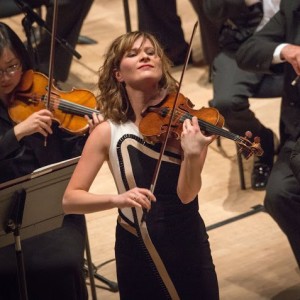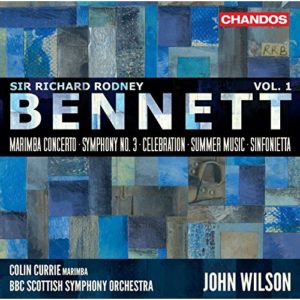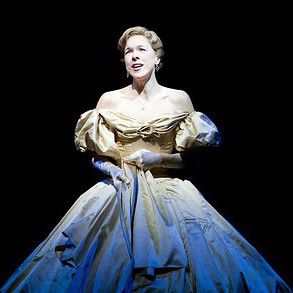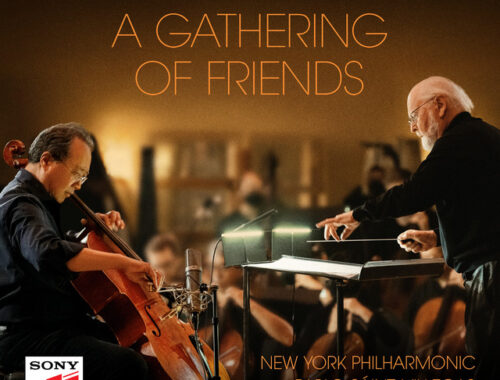Philadelphia Orchestra, Nézet-Séguin, Royal Festival Hall
 The venerable and venerated Philadelphia Orchestra swept into London bearing gifts and mixed messages from Nico Muhly. Actually that was the title of his crowd-pleasing opener for the orchestra – Mixed Messages (UK Premiere) – and for a moment or two the confusion implicit in the title might have extended to the identity of the composer. Was I alone in imagining the opening titles, the sharp graphics, of a movie that Hitchcock never actually made and a score that Bernard Herrmann never wrote.
The venerable and venerated Philadelphia Orchestra swept into London bearing gifts and mixed messages from Nico Muhly. Actually that was the title of his crowd-pleasing opener for the orchestra – Mixed Messages (UK Premiere) – and for a moment or two the confusion implicit in the title might have extended to the identity of the composer. Was I alone in imagining the opening titles, the sharp graphics, of a movie that Hitchcock never actually made and a score that Bernard Herrmann never wrote.
So a high drama opening – scintillating, pulsating, in the manner of Adams-like minimalism though with more variety in the sonic imaginings: strange disembodied harmonics in the cellos, a yearning Mahlerian idea from that same section – and all the while itchy, twitching percussion. Nervy, fast-thinking, loquacious, like the composer himself who bounded on to the platform at the close like an excited puppy behaving very much like the piece had sounded. Accomplished, though, no doubt, and the audience loved it. Perhaps because they’ve been there before and like where they’ve been.
But then something special this way came. We’d been here before as well but there are so many ways of exploring, of delving deep into the dark recesses of the masterpiece that is Shostakovich’s First Violin Concerto that the path taken by Lisa Batiashvili felt new and uncharted. Hers was the very antithesis of the all-out high-anxiety approach favoured by other distinguished practitioners – perhaps closer to the restraint and inwardness of the work’s dedicatee David Oistrakh. This was the most elegiac of readings – soulful but poised, heartfelt but high-minded, too. And in a piece which digs so deep but ascends so high the ethereal nature of the lofty slow music felt almost like an out-of-body experience. So much of the intensity was conveyed in intonation so true that it was almost painful. It was all so exposed in the best sense with a chamber-like transparency from Yannick Nézet-Séguin and the orchestra that constantly accentuated the intriguing scoring with horns and tuba but no trombones or trumpets. And heroic bassoons. They got to be stars here.
And so through Batiashvili’s single-mindedness and originality the dance of death of the scherzo – played with hair-raising rhythmic precision and controlled abandon – was irrevocably linked with the nervous breakdown of the monster cadenza between Passacaglia and Finale. What a performance this was. The poignant Tchaikovsky Romance with Nézet-Séguin at the piano failed to bring us down or lighten the mood. And more heartache awaited.
Not even the paring down and super-refinement of Rachmaninov’s later symphonic language – the Third and last Symphony – can disguise a heavy heart – and the sheer sense of loneliness engendered by a solo cello and solo clarinet in unison speaks with more amplitude than all those harmonically intense washes of swooning strings can ever convey. They have always been the Philadelphia Orchestra’s claim to fame and their unanimity did not disappoint here in the lyric effulgency dominating each of the three movements. The tricky and distinctive rubatos seemed inbred from Eugene Ormandy’s day – but the urgency, to say nothing of the rhythmic trenchancy and scintillation, of Nézet-Séguin’s direction took us back to the composer’s own recording with this very orchestra. That is quite a continuum.
High Society, Old Vic
You May Also Like

GRAMOPHONE Review: Richard Rodney Bennett Orchestral Works Vol. 1 – BBC Scottish Symphony Orchestra/Wilson
30/01/2018
A Conversation With JANIE DEE: ‘The King and I’
02/09/2010
One Comment
Trevor Yorke
As this is the first reference I’ve seen to this concert, when you say Rachmaninov’s “later symphonic language” are you referring to the 3rd Symphony or the Symphonic Dances?
Trevor Yorke